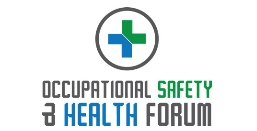Occupational health and safety (OHS) professionals attending the Occupational Safety & Health Forum are increasingly focusing on behavioural psychology as a key factor in preventing workplace incidents. Understanding how human behaviour, cognitive biases, and social influences impact decision-making can help organisations develop more effective safety programs that go beyond traditional compliance-based approaches...
1. The Role of Cognitive Biases in Workplace Safety
Humans are prone to cognitive biases—mental shortcuts that can lead to unsafe decisions. Some of the most common biases affecting workplace safety include:
- Optimism Bias – Workers may believe that accidents “won’t happen to them,” leading to riskier behaviour.
- Normalization of Deviance – Employees may become desensitised to unsafe practices if they have performed them before without consequence.
- Groupthink – Teams may ignore safety risks to conform to group norms, particularly in high-pressure environments.
By recognising these biases, safety professionals can design interventions to counteract risky decision-making and reinforce safe behaviours.
2. Risk Perception and Human Decision-Making
People assess risk differently based on personal experiences, workplace culture, and external pressures. Research shows that workers often:
- Underestimate long-term risks (e.g., prolonged exposure to hazardous materials).
- Overestimate dramatic, low-probability events (e.g., a rare explosion vs. daily ergonomic strain).
- Prioritise productivity over safety when under time constraints.
To address these issues, companies should implement behavioural-based safety (BBS) programs that encourage workers to reflect on their own risk perception and develop a stronger personal connection to safety protocols.
3. Social Influences on Safety Behaviour
Workplace culture plays a crucial role in determining how employees approach safety. Studies show that peer pressure and leadership behaviour significantly influence whether workers adhere to safety protocols. Key strategies include:
- Leadership by example – Supervisors who actively engage in safety practices encourage employees to do the same.
- Peer accountability systems – Encouraging workers to look out for each other reduces risky behaviour.
- Psychological safety initiatives – Creating an environment where employees feel comfortable reporting hazards without fear of punishment leads to increased safety compliance.
4. Training Programs That Address Behavioural Factors
To be effective, safety training should go beyond rule enforcement and incorporate psychological insights. Best practices include:
- Scenario-based training to challenge biases and improve risk assessment skills.
- Gamification and incentives to reinforce positive behaviours.
- AI-driven safety monitoring to provide real-time feedback and behavioural coaching.
By understanding the psychological factors that influence safety behaviour, UK organisations can develop more proactive, human-centred safety strategies. Addressing cognitive biases, risk perception, and social influences ensures that workplace safety is not just a policy—but a deeply ingrained cultural norm, ultimately reducing incidents and creating a safer working environment.
Occupational health and safety (OHS) professionals attending the Occupational Safety & Health Forum are increasingly focusing on behavioural psychology as a key factor in preventing workplace incidents. Understanding how human behaviour, cognitive biases, and social influences impact decision-making can help organisations develop more effective safety programs that go beyond traditional compliance-based approaches...
Are you searching for Behavioural Safety solutions for your organisation? The Occupational Safety & Health Forum can help!





